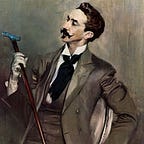Social Class Still Matters: Didier Eribon’s Returning to Reims
Didier Eribon’s memoir-essay challenges current political discourses that undermine the class struggle.
Didier Eribon, the famous French sociologist and biographer of Foucault, had a personal epiphany when his father passed away and he had to come back to his hometown — Reims, a city not too far from Paris but much smaller — to console his mother. Eribon’s main object of study had until then been primarily sexuality and gender expression; this had always made sense for him as a gay man who fled a provincial city for the freedom offered by one of the largest cities in continental Europe. However, as he remembered his childhood and youth in Reims, Eribon could not help but notice that asides from his sexuality, he had always felt like an outsider in certain settings (notably the Parisian bourgeois intellectual milieu that he belongs to currently) because of his family’s working-class background. Remembering his upbringing in Reims was an emotional rollercoaster: on one hand, Eribon is glad he escaped Reims because it allowed him to become a well-respected academic, writer and activist, but on the other, he didn’t stop to think that his relatives had been marked by their social class and that he ought to have felt more sympathy towards them. While Eribon knows it is too late to rebuild relationships with relatives he has long forgotten about, he knows it is not too late to address the role of social class as a determiner of someone’s fate. The result is his brilliant essay-memoir Returning to Reims (2009), in which he revisits his youth to demonstrate that the class struggle is far from over.
Eribon’s essay addresses different ways in which someone’s social class impacts their development. Notably, his comments on sexuality and gender in relation to working-class identity echo what more recent authors like Édouard Louis have pointed out — there were a set of expectations for working-class men related to their gender identity and sexuality; these included leaving school early, signing up for jobs involving manual labor and adhering to more traditional gender roles in their relationships with women. Most importantly, sexuality that deviated from heterosexuality was strongly condemned and often crushed through violence. Eribon doesn’t imply that the working-class is uniquely homophobic (far from it — he knows the bourgeoisie was as bigoted because he built his writing career when conservatism was popular in France) but instead seeks to narrate how hard it is to be both poor and gay. There were very few support networks for queer people during his teenage years, when he realized he was not straight. Even the leftist organizations he volunteered in saw queerness as a bourgeois value to be wary of. For him, therefore, moving to Paris was simply a matter of survival.
Eirbon also touches on the subject of education in France. He came to realize that the schooling available for him did not match his intellectual curiosity at all: in high school, for example, he would get frustrated when his philosophy teacher could not engage with complex texts and recommended popular books on mysticism instead. When he was admitted at a local university, his parents warned him that they could pay for 2 years of it at most and then he would need to find a job. Shortly after, too, he realized the philosophy department at his humble state university lacked the academic rigor and vibrancy of the nearby Parisian schools where so many new scholarship was being produced (Foucault and Bourdieu’s ideas were being spread across the globe!). Although he managed to move to the capital and eventually finish a master’s degree, Eribon recognizes that the education system does not work to allow people like him to succeed. French meritocracy is a myth because children from the banlieus sometimes do not even hear about the paths they could take after finishing high school (Eribon resents not having heard as a teen, for example, about the complicated application process to France’s elite universities, the grandes écoles).
The heart of Eribon’s book, however, is in his family. Annie Ernaux and Pierre Bourdieu (writers he was personally acquainted with) were the primordial influences of this text. Scenes like his mother expressing anger when she could not understand an English song Eribon learned in high school or his father finally showing some pride in him after seeing him talk on TV demonstrate the rising tension between a small (but not negligible!) group of French people who managed to enter into the exclusive bourgeois, intellectual world. These people exist in a privileged epistemological space: they know firsthand what poverty and oppression feels like and have the tools (knowledge and a public to share this knowledge with) to denounce how it persists after all these years. People like Eribon can say, for example, why working-class people often vote for right-wing parties or are distrustful of left of center ones (it is because they no longer speak in terms of class to appeal to them!)
Overall, Eribon’s essay-memoir might not be particularly innovative if someone is acquainted with the works of Annie Ernaux and Pierre Bourdieu, but it merges beautifully the literary sensibilities of the former with the theoretical boldness of the latter. It is a must-read for people who continue to deny the relevance of social class in an admittedly increasingly complex world.
